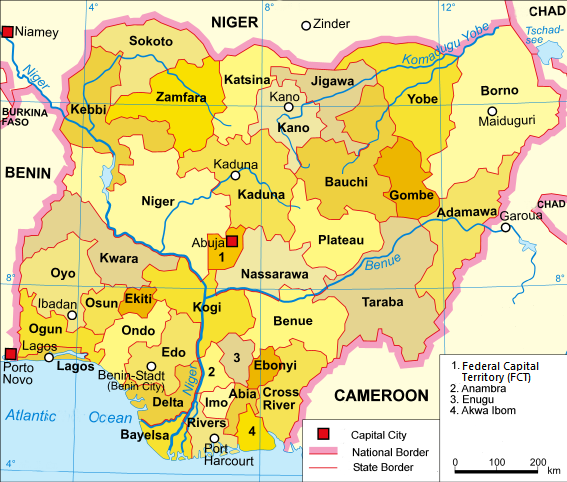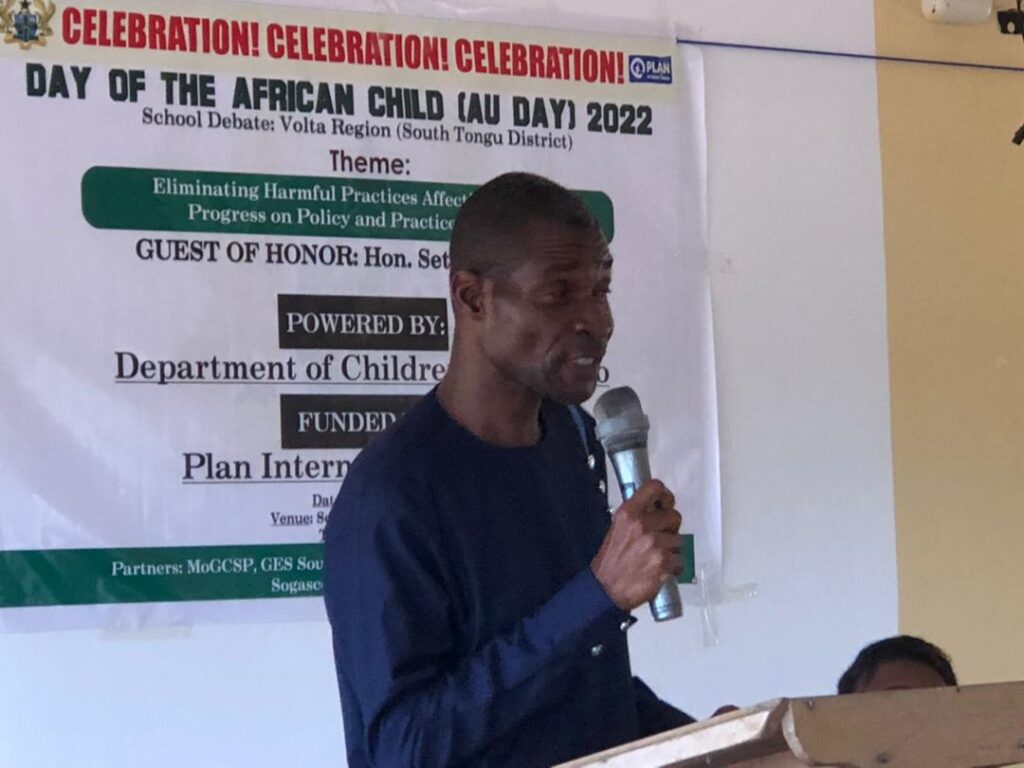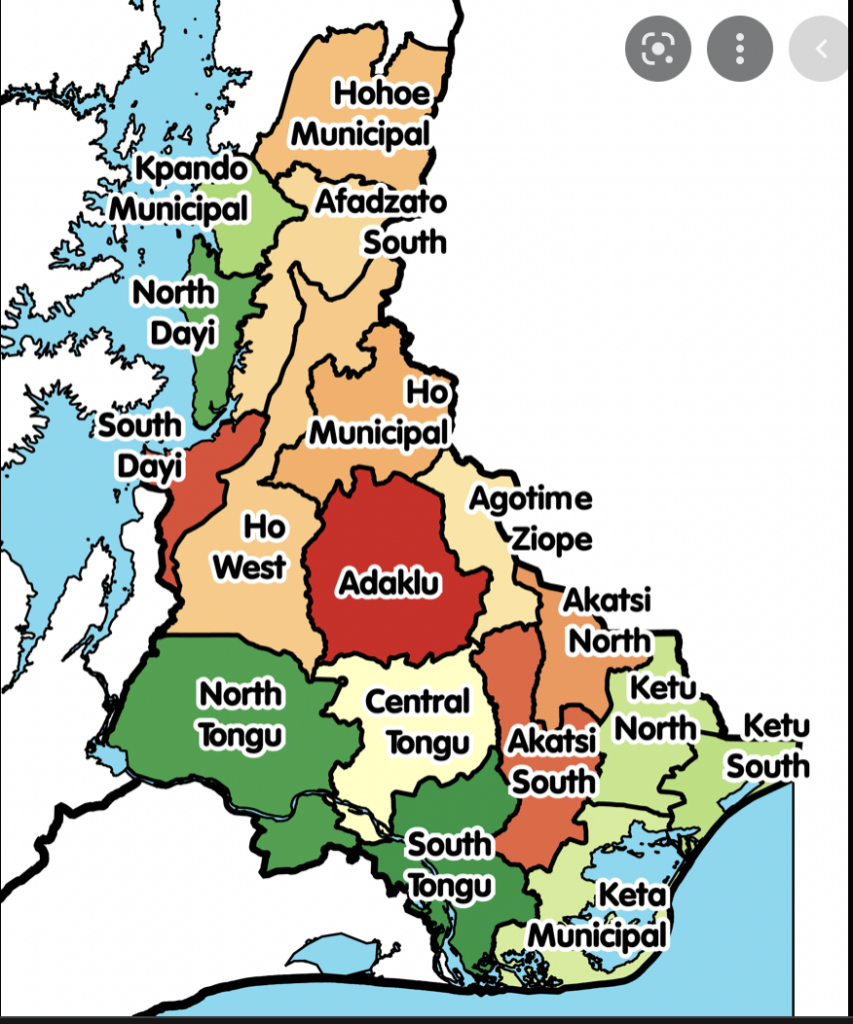Last Thursday, June 16, was the Day of the African Child, created by the organization of African Unity in 1991, and triggered by sad events in South Africa. The Day of the African Child is celebrated on the African continent and around the world.
In Nigeria, Africa’s largest country in terms of population and number of childen, where an estimated 75 million children live, the National Human Rights Commission (NHRC) paid attention to the event. Nigeria is no exception on the African continent where harmful practices threaten and affect the lives of millions of innocent and defenseless children. Among these practices we note child marriage, child trafficking, rape, female genital mutilation, infanticide and other forms of violence against children, some of whom are accused of being witches, some of whom are being targeted for ritualistic purposes, notably children with albinism.
Also in Ghana, the Volta Region office of the Department of Children under the Ministry of Gender, Children and Social Protection (MoGCSP), in collaboration with Plan International, Ghana, celebrated this year’s African Union Day of the African Child.
Mr Seth Kwasi Agbi, the District Chief Executive for South Tongu, in a keynote address, condemned all harmful acts such as child trafficking, child labour, and ritualistic murders which also victimize children.
(webmaster FVDK)
NHRC advocates strong mechanisms to fight harmful practices against children

Published: June 17, 2022
By: Michael Olugbode, This Day – Nigeria
The National Human Rights Commission (NHRC) has reiterated the need to devise and strengthen national accountability mechanisms that will deter harmful practices against children, so as to enable them to attain all-around development in life.
The Executive Secretary of the commission, Chief Tony Ojukwu, stated this in his welcome remarks at the commemoration of the 2022 Day of the African Child (DAC).
He noted that the celebration was an opportunity to take stock of what has been done with regards to the adoption of policies and practices targeted at eliminating harmful practices affecting children in Nigeria.
Ojukwu, who was represented at the event by the Director of Monitoring Department, Mr. Benedict Agu, said the 2022 theme of the celebration: ‘Eliminating Harmful Practices Affecting Children: Progress on Policy and Practice since 2013’, is appropriate as it seeks to address the peculiar human rights challenges affecting children.
He noted that these challenges, are negative harmful practices such as early/forced marriage, female genital mutilation, child trafficking among others.
He stated that against this background, the commission’s role in advancing the campaign to end harmful practices affecting children is hinged on its mandate to promote, protect and enforce the rights of all persons in Nigeria.
According to him, “Notably, the commission was a critical partner in the advocacy for the passage of the Child’s Rights Act 2003, and has been involved in continued advocacy for its adoption into Child Rights Laws of about 26 states of the federation.
“It is also a member of the State Child Rights Implementation Committee of several states in Nigeria and has continued to advocate for the mainstreaming of children’s rights in relevant policies of the government.”
Ojukwu stated that the commission has further prioritised Child Rights in its work through the creation of the Department of Women and Children, and the thematic team on the Rights of the Child, which have enabled it to take action against pervasive child rights abuses such as child marriage, Female Genital Mutilation (FGM), Sexual and Gender-based Violence (SGBV), infanticide, child trafficking among others.
In her key message, a member of the African Committee of Experts on the Rights and Welfare of the Child, Ms. Aver She said the commemoration of DAC is an opportunity to sensitise duty bearers on the importance of engaging children in their own issues and promoting participation as well as inclusion in line with the principles of child participation.
Gavar, who is also the director of Human Rights Education and Promotion in the commission, said the focus of the DAC 2022 is also to respond to the high prevalence of harmful practices affecting children in different parts of Africa, including rape, FGM, child marriage, infanticide among others.
She urged the government to strengthen its child protection system through increased budgetary lines across sectors dealing with child rights implementation and through the establishment of one-step centres for integrated response to child survivors of rape, child marriage, FGM and all forms of violence against children.
In her remarks, the Minister of Women Affairs, Dame Pauline Tallen, disclosed that the ministry has made progress in spearheading a range of policy documents to address harmful cultural practices, like the implementation of the Child’s Rights Act (CRA) 2003, National Guidelines on Establishment of Child Care Institutions, and National Strategy on Elimination of Child Marriage.
Source: NHRC Advocates Strong Mechanisms to Fight Harmful Practices against Children

AU Day of the African child marked in South Tongu, Volta Region, Ghana.

Published: June 17, 2022
By: News Ghana, Ghana News Agency – GNA
The Volta Region office of the Department of Children under the Ministry of Gender, Children and Social Protection (MoGCSP), in collaboration with Plan International, Ghana, have celebrated this year’s African Union Day of the African Child with a call to end harmful practices affecting children.
In an address, Mr Israel Akrobortu, the Volta Regional Director of the Department of Children, said some traditional customs and practices conflicted with children’s rights and were harmful to their development.
“Child marriage and Female Genital Mutilation are two of the most discriminatory harmful cultural practices that have been committed regularly over long periods that some communities and societies have come to accept,” he said.
Mr Akrobotu called on duty bearers to take urgent steps to stop such negative practices, which were affecting children, especially female genital cutting, to protect the vulnerable, especially girls from all unnecessary and dangerous practices.
Mr Seth Kwasi Agbi, the District Chief Executive for South Tongu, in a keynote address, said it was important to focus on the vital efforts of communities and child rights activists working on policies and practices to eliminate “these harmful practices affecting children on the continent.”
He explained that the acts, such as child trafficking, child labour, ritual murder, and defilement, if not curbed and eventually eliminated, would be detrimental to the growth and development of the continent.
Mr Alfred Dzikunoo, Programmes Coordinator, and a representative from Plan International, Ghana, said Plan Ghana had made many contributions to end the canker against the Ghanaian Child.
The interventions include empowering girls with life skills, knowledge and networks to become empowered agents of change in their own lives, engagement of duty-bearers such as GHS, DOVVSU, and DSW to improve education on child marriage FGM, and child labour.
Torgbi Atsugah Sogah Il, a Divisional chief from Fieve Traditional Area, implored participating students to be good ambassadors and serve as role models for other children in their communities as well as cultivate the habit of championing the right to education.
The 2022 celebration was on the theme: “Eliminating Harmful Practices Affecting Children: Progress on Policy and Practices since 2013.”
Comboni Senior High Technical School garnered 18 points against 15 by Sogakope Senior High School (SOGASCO) to win the debate on the topic: “Has the policies on harmful socio-cultural practices affecting children since 2013 curbed the menace,?”
The “Day of the African Child” dates back to 1991 when the African Union (AU) initiated a remembrance of the children who lost their lives in a peaceful protest in Soweto, South Africa, in 1976.
The event attracted school children, officials from the South Tongu District Education Directorate, teachers, local government staff, and traditional rulers within the South Tongu District.
Source: AU Day of the African child marked in South Tongu

